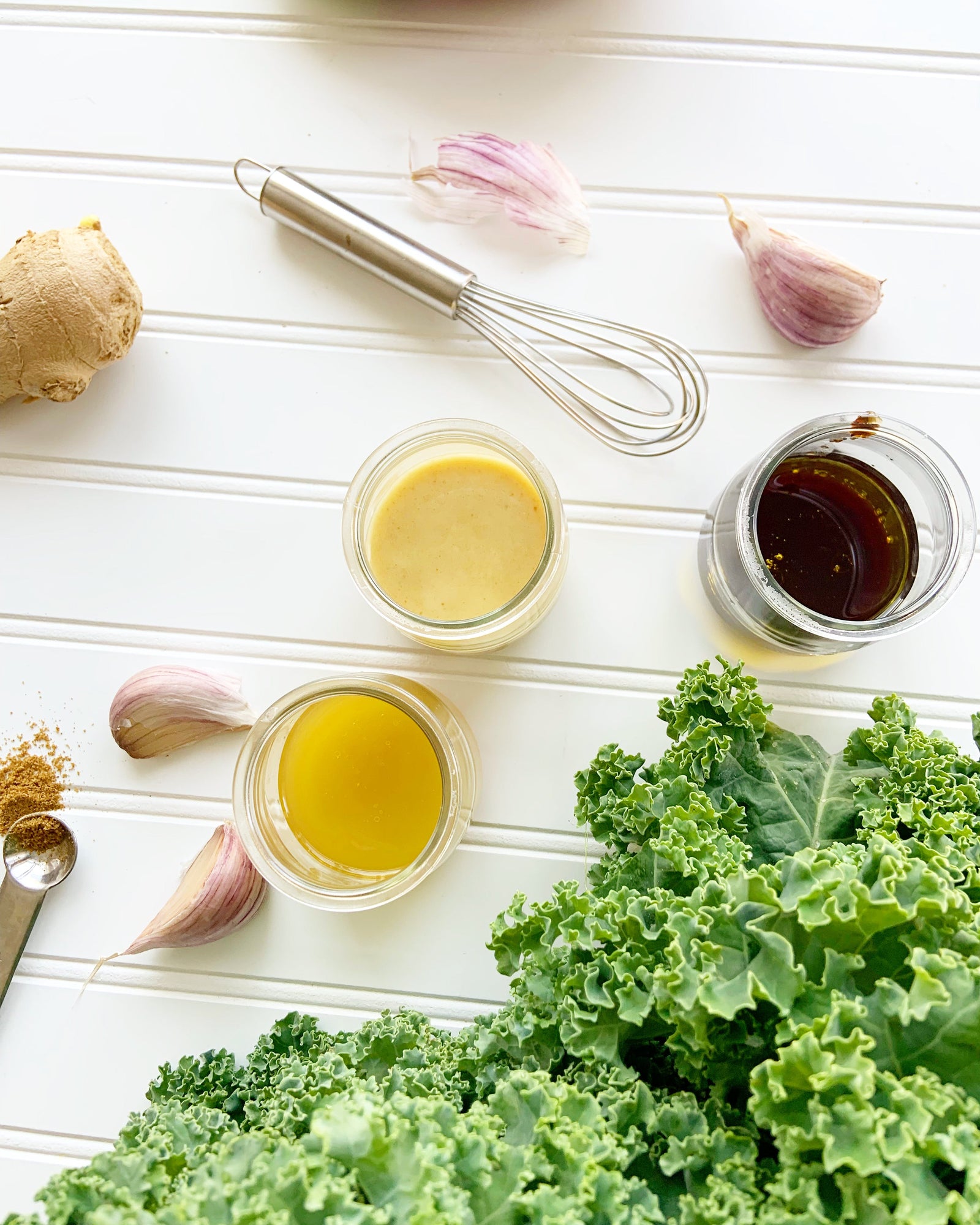Do you need a reason to eat more chocolate? Well, you've come to the right place - here are six, science-backed reasons you should eat more chocolate. (Okay, the last might be based on my own taste-testing experiments.) Yes, in the name of science, I've put chocolate to the test to determine if it's as healthy for you as science says. The answer: chocolate is pretty freakin' amazing! Here's what you want to know...
Should You Eat Chocolate?
Raise your hand if you’re a chocoholic? (Yes, my hand is waving in the air like I just don't care!) Well, research says go ahead! Stuff a chunk of dark chocolate in your mouth as it's got a lot of health-benefitting attributes.
6 Health Benefits of Chocolate, According to Science
- Happiness
- Heart Healthy
- Makes You Smarter
- Fights Inflammation
- Weight Management
- It Tastes Freakin' Good!
Is Chocolate as Good as Sex?
Oh, my! Luscious, molten, dark chocolate-filled moments are some of the best of all - in fact, research hints that chocolate might be as good as sex! Women who ate more chocolate were less interested in sex, leading scientists to the hypothesis that chocolate may be substituting for sex.
Will Eating Chocolate Cause Weight Gain?
No, dark chocolate eaten in moderation is not likely to cause weight gain. In fact, weight loss experts agree that you can lose weight and eat chocolate. In fact, chronic consumption of flavonoids found in dark chocolate may lower your risk of obesity, heart disease, and diabetes.
Is it Okay to Eat Chocolate Every Day?
Yes! But, buyer beware: not all chocolates are created equally. To find the healthiest chocolate, come nibble on these helpful tips:
What's the Healthiest Chocolate?
Best advice: become a chocolate snob. Chocolate comes in many forms, most of which are not healthy for you. Here are 4 tips for finding the healthiest chocolate for you and the planet:
- Skip chocolate with artificial flavour in the ingredient listing
- Choose pure cacao, or dark chocolate (>80% cacao)
- Smooth, velvety, and shiny chocolate is higher quality chocolate
- Opt for Fair Trade Certified chocolate
What is Cacao?
Chocolate is made from cacao beans, or rather, the seeds that are found in pods-like fruits on the Theobroma cacao tree. Cocoa means the powder that is left after pressing the fat out of the ground beans. Cacao could be from the pods, beans, or ground-up contents of the beans. In other words, the word cacao is usually used to imply the product is less processed than cocoa.
What is the Healthiest Chocolate?
Chocolate bars, also known as candy bars, comprised of varying amounts of sugar, cocoa butter (fat from cocoa beans), cocoa solids (dark, bitter, flavanol-rich part of cocoa beans), and milk (in the case of milk chocolate). Be wary of lower-quality chocolate candy, as they can also contain vegetable oils, butterfat, artificial colors, or flavours. Most people, about 72%, buy lower quality chocolate candies. But, not you! You are going to be a chocolate snob and get the healthiest chocolate you can. The addition of these unhealthy ingredients would have the noses of chocolate connoisseurs raised high in a look of disgust. Be picky about your chocolate! The most popular chocolate treats consumed contain added sugar, butter, and artificial flavour. There is 23% more sugar in confectionery chocolate today than 15 years ago. That means there are 10 grams more sugar in a 100-gram serving of your favorite chocolate treat. According to the World Health Organization, 25 grams of sugar is all adults should eat in a day. In addition, chocolate bars tend to use low-quality cocoa powder which contains fewer flavonoids than pure cacao or dark chocolate products.
Is Dark Chocolate Different from Milk Chocolate?
The biggest difference between milk chocolate and dark chocolate besides the milk is how much cocoa solids they contain. Dark chocolate typically contains 50 to 90% cocoa solids, while milk chocolate has as little as 10%. Cocoa solids are the healthiest part! If you want to sink your teeth into the healthiest chocolate, go for cocoa powder, or dark chocolate which contains at least 85% cocoa.
1. Chocolate Increases Happiness
Nibbling on a piece of sweet, deep brown chocolate is such a pleasurable experience. Chocolate has a fascinating impact on your brain. It is an excellent source of tryptophan, the amino acid needed to create serotonin. Eating chocolate triggers the release of serotonin and endorphins – brain chemicals that regulate your mood. That’s why eating chocolate makes you feel good!
2. Chocolate is Heart Healthy
Dark chocolate contains flavanol-rich cocoa. Flavanols are plant chemicals that may help protect the heart. Flavanols support the production of nitric oxide which helps the inside of blood vessels relax, which improves blood flow and ultimately lowers blood pressure. In fact, eating more chocolate was linked with a lower risk of heart disease, discovered researchers who surveyed over 20,000 men and women in England about their chocolate consumption.
3. Chocolate Makes You Smarter
Eating dark chocolate helps boost your memory and attention! Researchers from Mexico investigated what happens to the brain when people eat chocolate. The brain’s oscillations (ability to make an electrical output that helps the brain send messages needed for cognition, memory, perception, and behaviour) went off like fireworks. More blood flow and neuron activity in the brain occurs when dark chocolate flavonoids are in your system.
4. Chocolate Fights Inflammation
Diabetics can eat chocolate all day long, suggests the International Journal of Preventative Medicine, in a study of type 2 diabetes. Participants who ate a small piece of dark chocolate 5 times a day (30 g in total) caused a reduction in inflammatory markers in their blood. Of note, for pre-diabetics, studies show the flavanols in dark chocolate may increase insulin sensitivity.
5. Chocolate for Weight Management
Yes, eating chocolate can be part of a healthy lifestyle that promotes weight loss. (However, we aren’t talking about a chocolate-focused eating plan.) One study suggests chocolate can be part of a healthy eating plan that promotes weight management. In a California-based study, 84 adults ate 2 grams of flavonoid-rich dark chocolate every day and reduced their waist circumference
6. Chocolate Tastes Good
More than a dozen (well, more accurately 3 dozen years) tests of various types of chocolate, it's clear that there's a combination of cacoa, fat, sugar and salt that will make you melt with satisfaction - go find yours. It's an experiment I highly enjoyed.
How Much Chocolate Should I Eat?
Honestly, I don't eat a lot of chocolate - just a good, satisfying chunk when the cravings call. Eating what your body wants, a process sometimes called Intuitive Eating, can be helpful in establishing a better relationship with your food, your body, and ultimately helping you establish healthier eating patterns that are sustainable.
As for research, the journal Heart suggested at least one serving a week if you’re a female (age 50-64) is good for your health. For men, it’s 2 to 6 servings per week. Eating chocolate was found in the study to reduce the risk of atrial fibrillation by 21% in females and 23% in males.
As 1 in 4 adults are estimated to experience atrial fibrillation (a heart rhythm irregularity) in their lifetime, clearly that's science's way of telling us we should eat more chocolate!
READ MORE by Allison on Amazon
Chocolate consumption and indicators of adiposity in US Adults. Am J Medicine 2020 Feb 15.
Chocolate consumption and sex-interest. Cureus 2021 Feb; 13(2): 313310.
Effects of Dark Chocolate Intake on Brain Electrical Oscillations in Healthy People. Foods 2018 Nov; 7(11): 187.
Habitual chocolate consumption and risk of cardiovascular disease among healthy men and women. Heart – British Medical Journal, Mar 2018; 101:16.
Chocolate intake and risk of clinically apparent atrial fibrillation: the Danish Diet, Cancer and Health Study. Heart 2017; 103: 1163-1167.
Daily chocolate consumption is inversely associated with insulin resistance and liver enzymes in the Observation of Cardiovasular Risk Factors in Luxembourg study. Br J Nutr 2016 May; 155(9): 1661-1668.
Cross-sectional survey of the amount of sugar and energy in chocolate confectionery sold in the UK in 1992 and 2017. Nutrients 2019 Aug; 11(8):1798.
Daily consumption of chocolate rich in flavonoids decreases cellular genotoxicity and improves biochemical parameters of lipid and glucose metabolism. Molecules 2018 Sep; 23(9): 2220.
Also in Blog

The Microbiome Diet: Gut Health, the Human Microbiome and Your Health
Your guide to the human microbiome, with insights into the Microbiome Diet, and whether it can improve your health, including indigestion.

Why Can't I Sleep: Your Guide to Better Sleep



